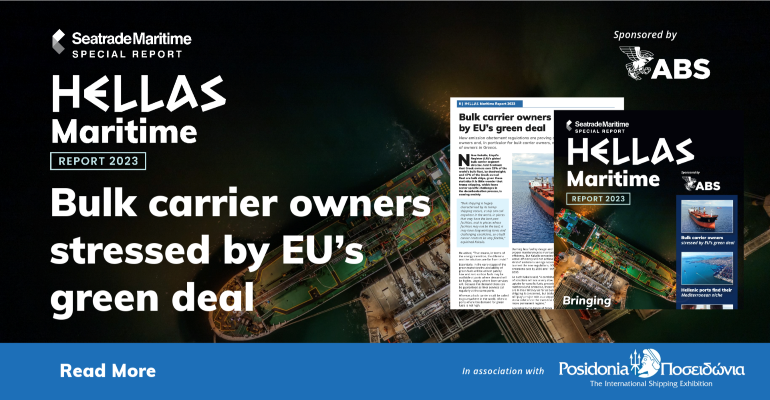Nikos Kakalis, Lloyd’s Register (LR)’s global bulk carrier segment director, told Seatrade that Greek owners own 25% of the world’s bulk fleet, by deadweight; and 47% of the Greek owned fleet are bulk ships, given these statistics it is little wonder that tramp shipping, which faces sector specific challenges in the decarbonisation process, is causing anxiety.
“Bulk shipping is hugely characterised by its tramp shipping nature, a ship can call anywhere in the world, in places that may have the best port facilities, and in places whose facilities may not be the best, it may have long waiting times and challenging conditions, so a bulk carrier needs to be very flexible,” explained Kakalis.
He added, “That means, in terms of the energy transition, the dilemma and the solutions are far from trivial.”
Essentially, in the early stages of the green transition the availability of green fuels will be at best patchy.
Low and zero carbon fuels may be available at ports where demand will be higher, largely where liner services call, because the demand there can be guaranteed as liner services call regularly at the same ports.
Whereas a bulk carrier could be called to go anywhere in the world, often to ports where the demand for green fuels is not high.
If you haven’t already, check the full article in our Hellas Maritime Report 2023
Copyright © 2024. All rights reserved. Seatrade, a trading name of Informa Markets (UK) Limited.
Add Seatrade Maritime News to your Google News feed.  |

